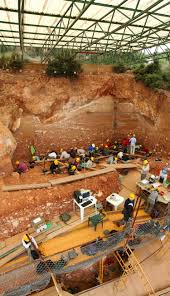Ph.D. in Classical Archaeology: Introduction, Admission, Registration, Eligibility, Duration, Fees, Syllabus 2024

Introduction:
A Ph.D. in Classical Archaeology offers a unique opportunity to explore the rich tapestry of ancient civilizations and unearth the secrets of the past. This interdisciplinary program combines the study of archaeology, history, art, and culture to deepen our understanding of classical antiquity. Doctoral candidates engage in advanced research, excavation projects, and scholarly inquiry, contributing to the ongoing dialogue surrounding ancient societies. Through hands-on fieldwork and academic study, students delve into the material remains of ancient civilizations, from Greece and Rome to Egypt and beyond, shedding light on their beliefs, practices, and daily lives.
Admission Process:
- Submit an online application including transcripts, letters of recommendation, and a statement of purpose.
- Fulfill prerequisite academic qualifications, typically a master's degree in archaeology, anthropology, classics, or a related field.
- Qualify for competitive entrance exams if applicable.
- Participate in an interview to discuss research interests and fit with the program.
Eligibility:
- A master's degree in archaeology, anthropology, classics, or a related field.
- Strong academic background with a focus on classical studies or archaeology.
- Research experience or demonstrated interest in archaeological fieldwork.
- Fulfillment of any additional requirements specified by the institution.
Completion Time:
Completing a Ph.D. in Classical Archaeology is a comprehensive endeavor that typically spans between four to six years of full-time study. This duration encompasses a multifaceted approach to scholarly inquiry, combining coursework, research, fieldwork, and dissertation writing.
During the initial phase of the program, students engage in advanced coursework tailored to classical archaeology, covering topics such as archaeological theory, methods, art history, ancient languages, and material culture studies. This foundational knowledge provides students with a robust understanding of the discipline and prepares them for independent research.
As students progress through the program, they embark on original research projects under the guidance of faculty advisors or research mentors. This research phase involves conducting fieldwork, analyzing archaeological data, interpreting artifacts, and contributing new insights to the field of classical archaeology.
The completion of a Ph.D. in Classical Archaeology culminates in the preparation and defense of a doctoral dissertation. This scholarly work represents a significant contribution to the field, showcasing the student's research findings, methodology, and critical analysis of archaeological evidence.
The exact completion time of the program may vary depending on various factors, including the complexity of the research topic, the student's research progress and productivity, publication requirements, and individual circumstances. However, by the end of the program, graduates emerge as experts in classical archaeology, equipped with the skills, knowledge, and research experience to pursue careers in academia, museums, cultural heritage management, and other related fields.
Career Opportunities:
- University professor or researcher in archaeology or classics departments.
- Curator or museum professional specializing in ancient artifacts and exhibitions.
- Archaeological consultant or heritage manager for government agencies or cultural organizations.
- Cultural resource management specialist in the private sector.
- Opportunities in publishing, public outreach, and cultural tourism.
Syllabus:
- Advanced coursework in archaeological theory, methods, and field techniques.
- Specialized seminars on classical civilizations, art history, and material culture studies.
- Independent research leading to a doctoral dissertation.
- Elective courses tailored to individual research interests in classical archaeology.
Internship Opportunities:
- Participation in archaeological excavations and fieldwork projects.
- Internship placements with museums, cultural institutions, or archaeological sites.
- Collaboration with research teams and projects both domestically and internationally.
Scholarship and Grants:
- Institutional scholarships based on academic merit and research potential.
- Research grants from government agencies, foundations, and private organizations supporting archaeological research.
- Teaching or research assistantships offered by the university.
FAQs:
Can I apply for this program without a master's degree in archaeology?
While a master's degree in archaeology or a related field is typically preferred, exceptional candidates with relevant backgrounds may be considered.
Are there opportunities for international fieldwork during the program?
Yes, many programs offer opportunities for students to participate in archaeological excavations and research projects abroad.
What types of research topics can I pursue for my dissertation?
Dissertation topics may include studies of ancient cities, burial practices, art and architecture, trade networks, religious beliefs, or any aspect of classical civilizations that interests you and contributes to scholarly knowledge.
